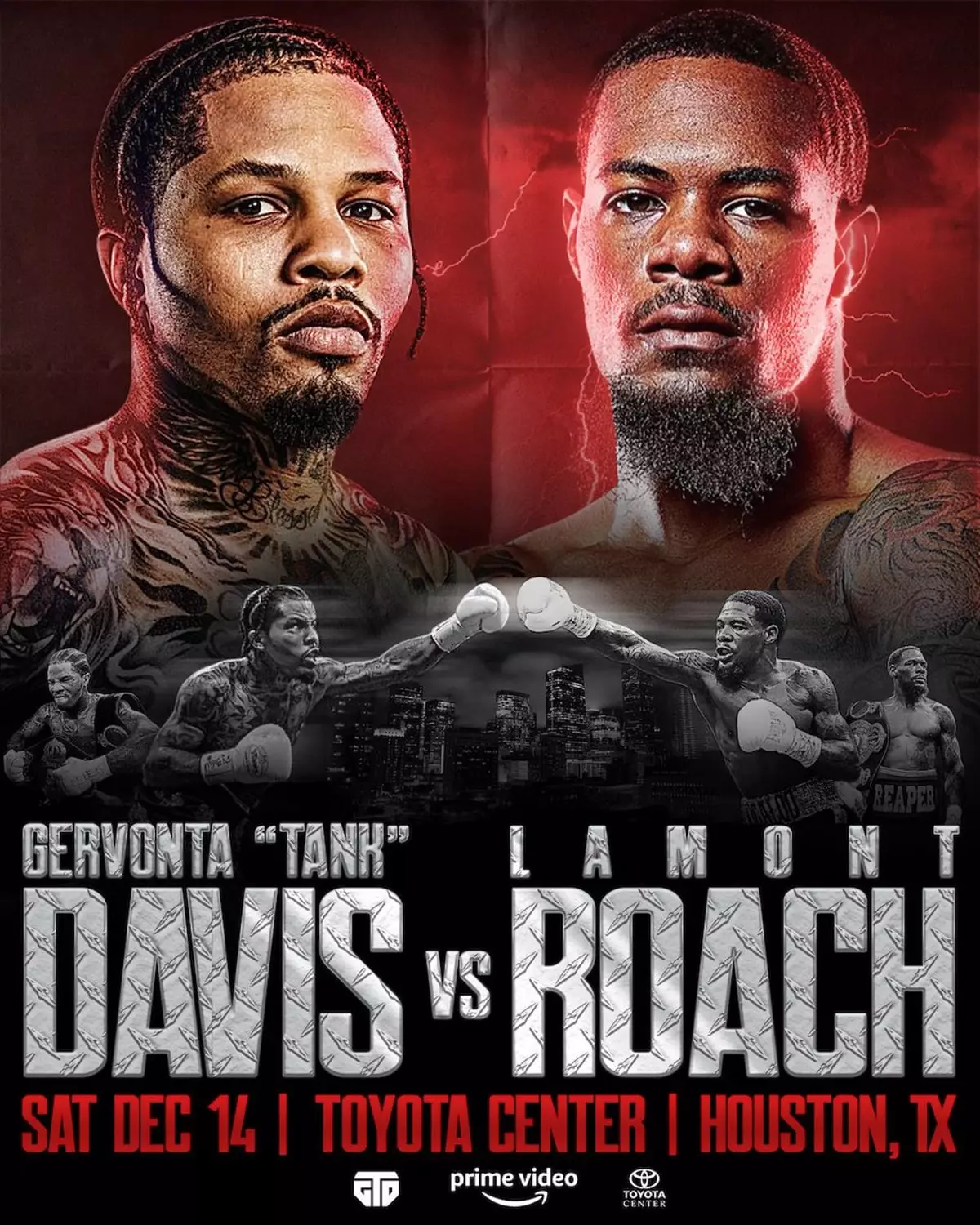As boxing fans eagerly anticipate the December 14th clash between Gervonta „Tank“ Davis and Lamont Roach at the Toyota Center in Houston, Texas, debate has erupted over whether this matchup constitutes a „cherry pick.“ Coach Stephen Edwards, who trains Lamont Roach, asserts that he does not view this fight as an easy selection for Davis, yet he also acknowledges that many observers are skeptical. This sentiment raises critical questions about matchmaking in boxing, the standards we hold fighters to, and the broader implications for the sport.
The term „cherry pick“ is often used to describe matchups where a favored fighter is paired with an opponent deemed an easy victory. Critics argue that Roach, with a record of 25-1-1 and only 10 KOs, fits this description, especially given that he is not currently ranked in the lightweight division and lacks significant wins. They highlight the nature of the fight, which takes place under the PBC banner, and point to Davis’s history of selecting relatively inexperienced opponents throughout his career. Supporters of this viewpoint argue that if Davis had faced more challenging competition—such as Teofimo Lopez, Devin Haney, or Shakur Stevenson—then bouts against fighters like Roach would be more justified.
However, Edwards challenges this narrative, suggesting that the high expectations for Davis stem from his prowess and perceived potential. He argues that the boxing community’s disappointment with Davis’s choice of opponents stems not from Roach’s qualifications alone but from the accumulation of underwhelming matchups that have characterized the champion’s career. Edwards indicates that mediocrity might not be a fair label, but many fans disagree, dining on the perception that the sport suffers when champions like Davis do not test themselves against the best.
The issue at the core of this debate raises profound implications for the sport of boxing. The increasing tendency for promoters to curate fight cards featuring fighters who can guarantee a victory—thus enhancing their marketability—poses risks to the integrity of the sport. Boxing thrives on competition and the ability for fighters to challenge themselves against worthy opponents. When matchups are consistently and overtly orchestrated to favor one fighter, the authenticity of the sport is called into question.
For Davis, this pattern of selecting softer opposition not only risks creating perennial doubts about his skills but may also impact his legacy in the sport. A career defined by a series of mismatches can lead to a lack of credibility, obscuring the accomplishments achieved within the ring. Moreover, Davis’s pattern of building his resume against less experienced fighters invites scrutiny on how fighters are developed and marketed in the modern boxing landscape.
The growing frustration among boxing fans regarding Davis’s selection of Roach is indicative of a larger trend within the boxing community. Fans advocate for fighters to be held accountable for their choices and implore the industry to foster an environment where champions are encouraged to face the very best. The sense of disappointment is palpable, particularly when alternative matchups featuring notable talents remain elusive. This reflects a broader desire for fairness and competitiveness in sports generally and boxing more specifically.
Despite Edwards’s assertion that Roach has a fighting chance, the overwhelming sentiment remains that fans perceive Davis’s fight against him as another calculated move to maintain an illusion of invincibility. Critics argue that victories against such challengers do not contribute meaningfully to the narrative of a champion’s journey or skillset. Instead, they create a disconnect between the fighter and the expectations of an increasingly discerning audience.
As December 14th approaches, the fight between Gervonta Davis and Lamont Roach stands at a crossroads, embodying the contrasting opinions on fight selection, talent recognition, and what it means to be a champion. It is important for both fighters and promoters to reflect upon the feedback from fans—seeking to foster a culture that values genuine matchups over constructed narratives. The soul of boxing rests on competitive spirit; both champions and challengers alike must strive to uphold that legacy.


Napsat komentář